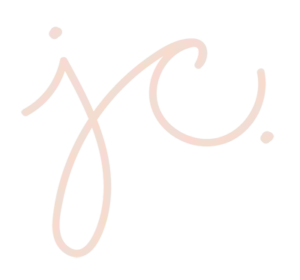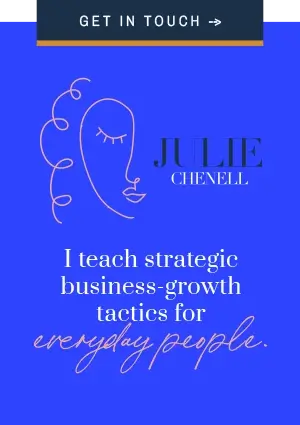Subscribe On:
Full Transcript:
I want to talk about how to become the best in the world at what you do. And I say that with a little bit of a disclaimer, which is it’s actually quite hard to become the best in the world at what you do, but it sounds better than saying, “How to become almost the best in the world at what you do.”
But the reason why I’m doing this podcast is because in the last podcast I talked a lot about when you’re burned out on online marketing. And one of the things I said, which I think is a little bit hard to swallow, is that you really shouldn’t be selling a course or a program until you are an expert in whatever it is you’re teaching. And there becomes a lot of gray area of what is an expert. Is it ten thousand hours? And honestly, as an expert generalist, I would never say that I’m an expert in one particular thing, but I’m really, really good at a lot of things, enough that I think I can be a teacher.
So it got me thinking, how do you actually become really good at what you do? So I think I want to preface this podcast by saying that the path to becoming the best in the world, even if you never reach that coveted status, is that the journey of just trying to come that way will position you so far above the competition that you won’t have to worry about them.
So this actually, this podcast episode is something that I talked about way back in 2017, right as I was getting started in Clickfunnels, and I came back to it and I was like, “Oh yeah, this is actually really good.” Alright so, here we go, these are the things that I think you need to incorporate into your life, if you want to become the best at what you do.
Number one, replication. How well can you replicate your success. So even if we talk aobut something as simple as gardening, if you can make a juicy red tomato in your garden, can you make it year after year after year? Can you make it in your neighbors garden? Can you make it in a pot? How well can you replicate that juicy, red tomato.
So what you’ve accomplished is super cool, but if you can’t seed it or make it happen in someone else, then the success dies with you. So if you are the best at what you do, you know how to replicate the process in others, not just once, but over and over and over again. So that’s the first thing, the first marker of an expert.
The second is imbalance. And I know that work life balance is super trendy and how you work less and earn more, and it’s not a bad desire, and honestly, you guys all know, I left Clickfunnels in part because my work life balance was way, way off. However, you will see that the people who are obsessed with their industry, with their market, with whatever it is they do, they aren’t necessarily balanced. In fact, you’ll find long periods of unbalance in their lives because they became so immersed in whatever it was that they were learning, that everything else sort of went by the way side.
This is another reason why I turn into the angry guy from Inside Out when somebody says that in order to be an expert or be worth following, you have to have expertise in like every area. Like if you’re a good marketer, you also have to be a size two. I’ve seen that sort of mindset, you have to be an amazing wife, an amazing mother, super healthy, super you know whatever, good citizen, good marketer, all these things. And I’m like, you know, people who become the best at something, usually have entire parts of their lives that are a disaster.
If you look at Picasso, you look at any sort of heralded expert that we think about in real life, in history, chances are they were kind of a nut job somewhere in some way. So imbalance is actually sometimes a marker of someone who’s working to become an expert.
The third thing is disruption. If you disrupt what is the status quo, you look at something that is actively happening, prevailing wisdom, and you are disrupting the world with your idea, and you stick with it. A lot of experts are also disrupters.
The next one is obsession and that’s very similar to imbalance, because this is the idea. If you become obsessed with knitting, that’s a funny thing, a funny example, but if you become obsessed with knitting, you don’t realize how much of your obsession, enthusiasm, excitement is needed to pull someone who’s not obsessed with knitting, even just a few inches in the right direction.
I’m going to give you an example that I love to use, which is Disney World. I am obsessed with Disney World. I am obsessed with everything, in fact, I’ve often thought I should really just start a Disney business because I am definitely a obsessed, imbalanced person when it comes to Disney World. However, what I do is when I bring somebody to Disney World, in fact, I just came back from Disney World, and one of my husband’s friends, his name is Ian, who is not a Disney fan at all, and also the most unemotive Scottish person I’ve ever met in my life. My obsession with Disney did eventually eek out onto him. So someone who normally wouldn’t be super excited about Disney wouldn’t think it was that amazing, you could start to see the excitement flicker, just briefly, in his eyes.
But my level of obsession had to be so far above that I could pull him even one inch in that direction. You want to be the best, become obsessed. Become obsessed with whatever it is that you teach. Now I think I’ve sold myself on a Disney business.
Okay, the next thing is legacy. At some point in the journey, the people who become the best, they stop worrying about money and start thinking about legacy, what mark they will leave on the planet when their time is up. So if you think about experts, there is a switch that happens once they become super obsessed, it’s now that they become super obsessed with planting that obsession in other people. That is replication and that is legacy. So that’s the next thing.
Another thing, system. People who become experts and bests in the world cannot get to the top without a system in place to support them and their followers. So the whole thing about replication, about being able to replicate it in other people, that requires a system. You think about McDonalds, as much as you may love or hate McDonalds, it has a system, a replicate-able system that can be put anywhere in the world and achieve the same results.
So people who are experts, they often have a hard time letting go of their thing, because at first there’s this lie that like, I’m the only one that can do this. But if you are really trying to become the best and also be able to teach that, you want to become obsessed with watching that system be replicate-able in others.
So for an example, I am a marketer. I teach people how to build funnels. I teach people how to market their businesses online. One of my insiders, her name is Allie. Allie has been with me for about two years, she is now seeing extraordinary success with her funnels, and now she is teaching funnels. I could do one of two things, I could be a jerk. I could be like, “Oh my gosh, I’m building my competition, look she’s now going to compete with me.” I could be thinking like that, and that would not be what an expert should think.
An expert should think, “Not only did I replicate this in somebody else, not only did I teach it to the point where Allie could produce the success, but now Allie can actually produce the success in other people as well.” I’ve achieved replication, I’ve also taken my obsession with marketing and she has that obsession as well. And I’m also thinking about legacy because now the success doesn’t die with me. It doesn’t even die with Allie. So in that regard I am a success because she is a success because who she teaches is a success.
And that is all amazing and if you are worried about money and you are worried about recognition and status quo, you are not going to think like that. But if you are thinking about legacy, that is going to be a sign that things are actually working the way they are intended to work.
Okay, the next thing, repetition. And repetition is very similar to replication, but it’s a little bit different. It’s like an athlete, think about how they train for the Olympics. Do you think that a diver knows how to do a dive? Yes. Does that change the fact that for hours and hours a day for weeks and months and years on end, that diver does the same damn dive every single day of their life? Yes. The coach will make them do it again and again and again.
So if you’re trying to become an expert in marketing, how many offers have you made, written, produced, sold? Are you doing it over and over and over and over, even when you hit 100% perfection the first time, it takes a thousand times more repetitions before you can hit 100% regularly. And you may never hit 100% regularly. So practice.
And the last thing is belief. And I think this is probably one of the most important ones. That if you were told that you were not useful, that you were not worth it, if you ever had somebody speak down on you, or think that you weren’t going to become much of anything, this is the hardest one. But belief that you have the capability and the potential to become one of the best in the world at what you do. And nobody else is going to believe you if you don’t believe you. So that work is probably the most important work, as you’re striving to become an expert.
So to recap, replication, imbalance, disruption, obsession, legacy, system, repetition, and belief, and it’s all about the journey. It’s never about the arrival, because most of us you know, the best in the world is like, there’s 100 people that can hold the best in the world on any given thing, and there’s like 7 billion of us. But the journey to become the best with the failure, the monotony, the imbalance, repetition, that is the thing that you have to fall in love with. And if you do you won’t have to worry about all the things that people typically worry about. Because people will be attracted to you, to your obsession, and they will, you will start to see your legacy being laid, and it’s all worth it. So thanks guys, appreciate you.









0 Comments